I made screencaps of Talia in the movie “The Sweet East”. Click on the gallery link below to see all new photos.
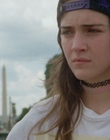


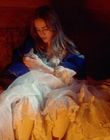
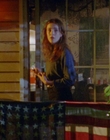
I made screencaps of Talia in the movie “The Sweet East”. Click on the gallery link below to see all new photos.





Talia Ryder Falls Down the Rabbit Hole in The Sweet East
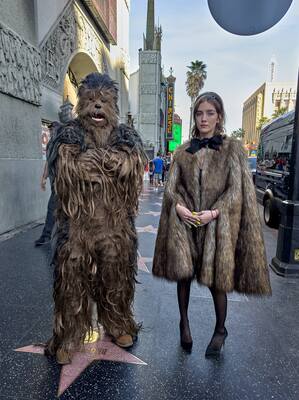 At 21 years old, Talia Ryder may still be a fresh face in Hollywood, but the actor and trained dancer has been working since she landed a role on Broadway’s Matilda the Musical. She made her 2020 film debut in the critically acclaimed abortion drama Never Rarely Sometimes Always, and since then has brought her down-to-earth acting style to West Side Story, Master, Do Revenge, and Craig Gillespie’s GameStop stock craze comedy, Dumb Money. But it’s her latest turn in Sean Price Williams’s psychedelic film, The Sweet East, that showcases her captivating stoicism.
At 21 years old, Talia Ryder may still be a fresh face in Hollywood, but the actor and trained dancer has been working since she landed a role on Broadway’s Matilda the Musical. She made her 2020 film debut in the critically acclaimed abortion drama Never Rarely Sometimes Always, and since then has brought her down-to-earth acting style to West Side Story, Master, Do Revenge, and Craig Gillespie’s GameStop stock craze comedy, Dumb Money. But it’s her latest turn in Sean Price Williams’s psychedelic film, The Sweet East, that showcases her captivating stoicism.
The Sweet East is a little like Alice in Wonderland. Your character, Lillian, wanders into different situations, all involving complicated men who are like characters in a novel.
We never talked about Alice in Wonderland, but it’s a reference that keeps coming up in conversations about the film. Strangely, Simon Rex and I rehearsed our scenes right by the Alice in Wonderland statue in Central Park. So maybe she was watching over us.
You began your career on Broadway.
For my 12th birthday, my grandmother got us tickets to see Matilda the Musical on Broadway. After I saw it, I said, “I need to do that.” My sister and I convinced my mom to let us audition for Matilda. She drove us to New York, and we went to an open dance call. There were hundreds of kids, and then there were cuts and fewer kids, and more cuts. It felt like the longest process, but we were lucky enough to get cast. My sister was Matilda. I played a girl named Hortensia.
And your sister plays your sister in The Sweet East.
She technically plays my cousin. My sister’s never smoked in her life, and we’re smoking in the scene. And one of the producers was like, “Wait, should we tell her to inhale?” And Sean was like, “Leave it, leave it, leave it. It’s perfect.” It’s my favorite scene. It’s so sweet.
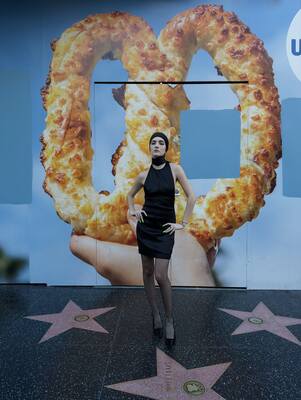 What was your first on-screen kiss?
What was your first on-screen kiss?
Never Rarely Sometimes Always.
That character is almost like the sister to the character in your other movie, because there’s a survival aspect to both of them.
Totally. They are actually really similar.
Did you feel like you were constantly having to change personas when you were going through the different scenarios?
That was one of the really fun things about getting to play a character like Lillian—she wears many different hats and gets to try on these different personalities throughout the film. The constant about Lillian is that she’s always making decisions for the plot. She knows that she’s in a film. She’s very aware of the camera watching her. She likes being watched, and that is the driving force. While she may dress different and talk a little different depending on who she’s with, she’s the same girl.
You’re wearing a T-shirt that says “TikTok Sport.” Are you big into TikTok?
I had TikTok, but I deleted it. TikTok is awesome—I liked learning the dances. But the algorithm’s too good. I feel bad if I spend too much time on my phone.
Senior Style Editor: Allia Alliata di Montereale. Senior Fashion Market Editor and Menswear Director: Jenna Wojciechowski. Hair for portfolio by Mustafa Yanaz for Dyson at Art+Commerce; makeup for portfolio by Emi Kaneko for Tom Ford at Bryant Artists; manicures for portfolio by Michelle Saunders for Chanel. Set design by Peter Klein at Frank Reps. Special thanks to Ms. Bebe at Outfitters Wig Shop in Hollywood.
Talia Ryder Says Yes to Adventure
The twenty-one-year-old actress, who stars in the indie romp “The Sweet East,” on her early years as a child performer, making meaningful art in a man’s world, and why Madonna is her role model.
The first time I became aware of the actress Talia Ryder was while watching the 2020 independent film “Never Rarely Sometimes Always.” In the movie, directed by Eliza Hittman, Ryder plays Skylar, a small-town Pennsylvania teen who travels with her cousin to New York to help her procure an abortion without parental consent. Ryder was only sixteen at the time, but the subtlety of her performance in Hittman’s sensitive, downbeat film is striking, all the more so considering that it was her first dramatic acting role. Born in Buffalo and raised along with two younger siblings by her mother, who is a doctor, Ryder was a child dancer who got her start onstage when she was twelve, playing Hortensia in the Broadway musical “Matilda.” Her family moved to New York City for the musical, and Ryder transitioned to screen acting, first in Hittman’s movie, and then in a variety of projects, among them blockbuster fare like Steven Spielberg’s “West Side Story” and the Netflix comedy “Do Revenge.” (She might be most familiar to Gen Z audiences, however, for playing Olivia Rodrigo’s doppelgänger in the music video for “Deja Vu.”)
Recently, Ryder, who is now twenty-one, returned to indie movies with a lead role in “The Sweet East,” the cinematographer Sean Price Williams’s directorial début. In the film—a no-holds-barred picaresque romp, written by Nick Pinkerton—Ryder plays Lillian, a South Carolina teen whose good looks and ingenious manner allow her to glide from one American subculture to another. (She meets a slew of colorful characters along the way, played by actors such as Jacob Elordi, Simon Rex, Ayo Edebiri, and Jeremy O. Harris.) Earlier this month, I met with Ryder at the Odeon, in Tribeca. She was sporting long neon-green nails (“They actually really inconvenience my life, but I look down at them and they make me so happy,” she told me) and was on her way to the Roxy Cinema to see Ronald Bronstein’s American indie mainstay “Frownland,” which Price Williams was introducing. Over French onion soup and chocolate pudding, we discussed the perils and boons of being a child performer, the omnipresence of the male gaze, and her desire to make art that is meaningful. Our conversation has been edited and condensed.
When did you start dancing?
I took my first dance class when I was about three. By the time I was eight, I went to one studio that was very strict ballet training, and I also did contemporary dance at another studio, where I joined the team. In seventh grade, I was dancing for twenty hours a week. It was really intense, but I loved it. My younger sister, MiMi, loved dancing, too. We would do “The Nutcracker” every year. Our little brother, Tre, would also want to be included, so he’d be like a bonbon or a piece of candy.
What was it about dance that you liked?
I hated training, the rigorous standing at the ballet barre for hours doing drills over and over, though obviously you need that, but I did love performing, and being part of a team with a group of people doing the same thing. It’s not unlike being on a movie set. I also had an easier time making friends at dance than in school, where I was very quiet, and not very social.
You do seem a bit shy, which is surprising for an actor.
Don’t get me wrong, I love being the center of attention. [Laughs.] But I always had an easier time expressing myself when I was performing. In social situations, I prefer listening to people. It’s more interesting than talking.
How did it come about that you moved to New York?
The summer going into seventh grade I’d been in the city doing a dance training convention, living at my uncle’s, and the casting director from “Matilda” came in to give a workshop on what an audition for Broadway would look like. She taught a segment from “Revolting Children,” which is one of the numbers, but she explained that if you were to really audition for the show you’d have to get a song prepared, and then they would probably give you a scene, and you’d have to show up for an open call.
Did that seem immediately attractive to you?
No. [Laughs.] I was, like, wow, that seems intense. But then my grandmother took me to actually see the show, and I had the craziest feeling, like, I should have auditioned for this. It was so dance-heavy, and there was singing but the kids were all singing together, and it just seemed like so much fun. The choreography is a lot of fight choreography, a lot of sharp staccato movements, a lot of punches and grunts, and I had never seen that type of dance before. I was like, that is what I want to do now. I remember leaving the theatre and going home and then that night researching the next open call and showing my mom: Can we drive to New York City on October 5th so I can go to the open call? And she agreed. My mom is a quiet lady, but she’s always up for adventure.
What was that first audition like?
We got there, and there were probably, like, six hundred kids, and we waited all day, over ten hours, and I eventually got to dance. They taught us two numbers. I can be really hard on myself, not so much now, more so when I was younger, but I was in such a horrible mood after, because I thought I did a bad job. I was acting like a little demon. And I remember my mom being, like, “You need to snap out of this, this is so bad, and you’re not doing this if you’re going to act like this.” I did get a singing callback, and then there were four more callbacks after that, but I heard nothing. And, meanwhile, MiMi had also gone to the first “Matilda” audition—she was nine, and then they asked if she’d come back and audition again for the role of Matilda. She ended up getting cast first, and that’s when we moved to the city. Then the girl who had the part that I ended up getting was going to be too tall, and they asked if I’d come back and audition again for that part, and I got it.
There’s a height limit, that’s the thing. I was really close to not being able to audition. Four-eleven was the cutoff, and I was four-ten and a half. That’s why I was, like, I need to audition now, because I’m going to get taller and I’m not going to be able to do it in a year.
You had to be below four-eleven? What happens if during the run of the show you get taller?
The ensemble kids worked on contracts that would be renewed every six months. If you get too tall, then they don’t renew your contract when the six months are up. You’re booted.
Wow.
It’s harsh.
In retrospect, did you understand what you were getting yourself into?
Totally. I watched kids and their moms show up to this audition and I got the vibe that everyone in that room, or a lot of these people, this is what they do. They have their books with their headshots and résumés, it just seemed so normal to them. And I wanted to be like them. I was, like, I’m getting my binder, I’m going to go get my headshot, I want to do all this. I was aware.
You seem well-adjusted, and you have a mother who is supportive and has her own career, but it still strikes me as incredibly hard to deal with all this stuff emotionally as a child. These are adult-y problems.
I had to deal with a lot of adult-y things from the time I was little, having a single mom and stuff. So I feel like I was ready for that. I wanted more responsibility, I wanted to work, I wanted to dance, and “Matilda” was an opportunity to do that. It just clicked. But no, it was crazy, the things that parents of other children would say to me. I had a dad come up to me and say I looked like a monster I was so tall.
What?!
I ended up getting renewed twice, and by my second renewal I was definitely too tall to be in the show, but doing a show with kids, there are a lot of behavioral issues, and if you had good behavior that went a long way, like with any job. And I took it really seriously. But some parents got really nasty toward the second renewal. It was really weird, especially the fathers, which was even weirder—they were always commenting on my height, my weight, even. I had a girl telling me, “It looks like you’re growing boobs. You can’t play an eight-year-old if you have boobs.”
And during that time, I really didn’t want to grow up. I was thirteen and fourteen in the show, and I did start getting boobs. It’s hard enough [without being an actor]. I was embarrassed. It separates you, and you’re this other thing, you’re not the same anymore. There’s a whole different set of eyes on you when you become a woman, and there’s so much more that comes with being a woman than with being a thirteen-year-old.
What happened after “Matilda” closed?
There was no way I was going back to Buffalo. I would have had to have been dragged out. And my mom, too, really liked living here. So I enrolled at Professional Children’s School, and they have a really amazing Broadway scholarship. If you’d been on Broadway, the school can be pretty much free if you need, and it’s a private school, and I wouldn’t have been able to go otherwise. So through high school I started auditioning for films.
How was it transitioning from dancing to acting?
I did really want to act, but I didn’t really know if I was good. I was going on auditions because I wanted to do it, and I started watching more movies, being in the city, and going to Metrograph and different theatres. I wasn’t sure it was a possibility. And then I got an audition for “Never Rarely Sometimes Always.”
Did you make a conscious decision to try for indie movies rather than big-budget ones?
No. Around the same time, I was auditioning for “West Side Story,” which was more similar to the “Matilda” audition, a huge dance call, and Spielberg was there. I showed up and it was everyone I’d grown up watching with my mom on “So You Think You Can Dance.” Just the best of the best. I was texting my mom, “I think this is a waste of time.” But I ended up getting the small role of Tessa, Baby John’s girlfriend. Those auditions are really fun. Not if you get cut, of course, but the adrenaline of hearing your name is like. . . . I don’t know if I’d want to do it again, but I remember it fondly.
Doing “West Side Story” was incredible. I was only in one dance number, and there were so many moving parts, it was a huge scene. Spielberg was very present. You understand how someone like that is the greatest of all time. It was so amazing seeing him stage a shot, go back behind the monitor, and then ask whoever was sitting there, “Did that look cool?” He’s so kind and curious and open.
“Never Rarely Sometimes Always,” of course, was a much more modestly budgeted project.
I like working on movies like that, where the director really has control of the product. This was the case with Eliza, or now with Sean [Price Williams] on “The Sweet East.” I’ve worked on projects where the producers are making really big calls, and to make a choice you have to ask a bunch of faceless people what they think, and I prefer working in an environment where it’s the director’s show. Being on “The Sweet East” made me realize how much I love having a hand in the story that I’m telling. They looked to me for a lot of advice and big decisions about the character in the film. It was the type of collaboration that was very unusual, and I loved it.
You’ve also done a play recently.
Yes. “How to Defend Yourself,” by Liliana Padilla. A very sad play, but a beautiful play. We did it at the New York Theatre Workshop. It’s about an assault that happens on a college campus, and how my character and another character who are in a sorority with the girl who was assaulted create a self-defense course to try and open up dialogue about sexual assault. I had to learn Muay Thai for the role. A lot of it was about gender violence and feeling unsafe in your body.
Are these concerns that preoccupy you? Obviously, “Never Rarely Sometimes Always” has to do also with the body of young women, women’s rights on their body, and feeling unsafe.
It’s definitely something I think about a lot. As a young actor in a woman’s body, you have to deal with the fact that it’s still a man’s world. As much as things have changed, you’re always going to deal with people who think you’re an idiot, or who don’t pay you any mind because of your age, or who are judging you for your body. As a woman, you always feel like you’re like a subgenre of being human. In a way, though, sometimes I like being underestimated and I like people thinking that I don’t know what’s going on, because they’ll say more to me or let their guard down more.
Are there certain actors or performers whose careers you see as a potential model for your own?
I really admire Madonna’s career in a lot of ways. Not that I see myself on that same trajectory, but she just put herself in a position where she could do whatever she wanted. She literally was her own boss. When she wanted to do movies, she did movies. And she made music, and her music videos really had a voice in art and culture, they were so powerful. Just her sense of self. Even when she wasn’t huge, she was never soft, and she was controversial, and people hated her, and she was raunchy, and she just did what she wanted. And I’m a very different person, but I would like to be on a path like that. We have the same birthday, actually. And she was a dancer.
In the prime of her career, Madonna was playing with the expectations people have of attractive young women. And I think “The Sweet East” has some of this. Being an attractive young woman affords Lillian a lot of mobility between different environments, but it’s in some ways limiting.
Totally. It’s hard to relate to a lot of characters that people in Hollywood are creating. It’s almost, like, a joke at this point, “characters written by men,” but they’re always these quote-unquote layered women. Quiet yet extremely bold, beautiful but don’t know they’re beautiful. I know a lot of women who are beautiful and know they’re beautiful, like Lillian, for example.
But her youth and gender are a complete double-edged sword. She realizes she can just have an easy life, living off her beauty, and it gives her a sense of confidence, but it’s not what she wants.
She knows she’s been watched by men, and that’s who she’s performing for, even in her private moments, which I think about a lot in my life, too. Who am I performing for? But when Lillian leaves at the end of the movie, me and Sean have joked that she’s going to become President. She has a plan.
What’s your plan right now?
I’m writing a ballet about growing up in the city. I’ve started writing songs. I want to direct. A lot more seems possible in the past few months. Maybe that’s just growing up. I hope a character like Lillian makes people want to go on more adventures and say yes to more scary things, and the stuff that I’m writing, too, wants to do this.
Utopia has acquired North American rights to “The Sweet East,” a contemporary travelogue that marks the feature directing debut of Sean Price Williams. The sale comes after the film debuted at Director’s Fortnight during the 2023 Cannes Film Festival.
Williams has a reputation as one of the most talented cinematographers in the independent film space, having previously worked with the likes of the Safdie Brothers, Alex Ross Perry, Michael Almereyda, Abel Ferrara and Albert Maysles. Here, he brings a script by cult film critic Nick Pinkerton to the screen.
Critics hailed the film as fresh and often funny, while praising the performance of Talia Ryder, who played a key supporting role in “Never Rarely Sometimes Always.” In “The Sweet East,” she plays Lillian, who runs away while on a school trip, encountering everyone from white supremacists and Islamic radicals to neo-punks and woke avant-gardists. The film also stars Simon Rex (“Red Rocket”), Earl Cave (“True History of the Kelly Gang”), Ayo Edebiri (“The Bear”), Jeremy O. Harris (“Emily in Paris”), Jacob Elordi (“Euphoria”) and Rish Shah (“Do Revenge”).
“Much in the spirit of the making of ‘The Sweet East,’ Utopia offers a daring partnership for further exploring the possibilities of indie film distribution,” Williams said. “We greatly look forward to collaborating with this progressive film distributor as the current state of cinema and distribution require a new vision.”
Utopia is eyeing a fall release in the U.S. “The Sweet East” recently screened as part of the Karlovy Vary International Film Festival, and was also just announced as an official selection of the 2023 Melbourne International Film Festival.
“Long celebrated for his cinematography, Sean Price Williams shows his mastery as an auteur in his own right with ‘The Sweet East,’ his distinctly nonconformist odyssey of modern America,” said Danielle DiGiacomo, Utopia’s head of content. “Utopia is honored to take on his long-awaited debut and collaborate on a release that will be remembered as a seminal work of our time.”
A production of Marathon Street and Base 12, “The Sweet East” is produced by Craig Butta, Alex Coco and Alex Ross Perry; executive produced by Jimmy Kaltreider and David Kaplan, with cinematography by Willams and editing by Stephen Gurewitz.
This deal was negotiated by DiGiacomo on behalf of Utopia, and Laura Nacher of The Match Factory and Craig Butta on behalf of the filmmakers.